Kurdish women are getting involved in the peace process to promote a free, equal and democratic society.
For more than eight decades, the Kurdish people have been pushing for cultural recognition and territorial independence. The Kurds are another contemporary example of a people without a land. After the Treaty of Lausanne was signed in 1924, the Middle East was divided into several countries and the territorial region known as Kurdistan was split between Syria, Iraq, Iran and Turkey.
As a response, Kurdish political organizations and military factions were created across the region to defend the Kurdish cause. However, they have met fierce resistance from the central governments in all four countries, which has often resulted in armed conflict and violence such as the Halabja chemical attack in Iraq in 1988.
At present, only Iraq and Iran have recognized the existence of a Kurdish zone on their territory: the Kurdistan Regional Government in northern Iraq and the Kurdistan Province in western Iran. In Syria, taking advantage of the civil war, the Kurds declared self-rule in November 2013 — although the proliferation of Islamist brigades who question their legitimacy undoubtedly represents a great challenge.
In Turkey, despite decades of violent conflict, the Kurdistan Workers’ Party (PKK), along with other Kurdish insurgent groups, has not reached their longstanding dream of achieving independence or at least a certain degree of autonomy. However, it is important to stress that people on both sides have been working to solve the issue and promote peace.
Since December 2012, Turkish Prime Minister Recep Tayyip Erdoğan and jailed PKK leader Abdullah Öcalan have engaged in negotiations known as the “Solution Process.” On March 21, 2013, Öcalan declared a ceasefire and an end to armed struggle. But strongmen and well-known political figures are not the only actors playing a role in constructing peace.
An unknown, yet significant dimension of the Kurdish issue in Turkey is the involvement of thousands of women in the peace process. When it comes to conflict, there is a tendency to see women through the simplistic prism of victims — as widows, as casualties of attacks, as mothers of fallen combatants, and as abused vulnerable human beings.
However, women may — and often do — play a pro-active role in conflict, sometimes as war combatants and sometimes as peace negotiators. As it turns out, women in Turkey are deeply committed to the resolution of the conflict between the Kurds and the Turkish government, and they play an essential role in the peace process.
In order to explore this singular dimension of the conflict, Fair Observer’s Clotilde de Swarte speaks to Elodie Sellar, who is currently conducting research on the women’s movement in Turkish Kurdistan. De Swarte and Sellar talk about the women involved in the Kurdish peace process, the nature of their role, and the results of their action.
Clotilde de Swarte: When it comes to Kurdistan, one tends to focus on Kurdish fighters, notably those of the PKK. Yet most of them are male, while your work suggests that women also play an active role. Who are the Kurdish women that are getting involved in the peace process in Turkish Kurdistan?
Elodie Sellar: On the Kurdish side, it is basically fair to say that all Kurdish women are getting involved — young and old; educated and uneducated; from poor and wealthy backgrounds; from a variety of professional backgrounds; from the political world as well as from civil society or academia and also housewives; from rural and urban areas; and so on. In essence, there is no single or at least dominant group of women in this peace process. It is a very united and heterogeneous involvement. After all, every single woman has a stake in trying to ensure a successful outcome of this peace process and they are more than aware of this.
Kurdish women realized the power and emancipation the women in the PKK had. Gradually, this filtered down into society and the Kurdish women’s movement was born.
However, on the Turkish side, there are only a few women getting involved. In fact, during my interviews, I realized that, ironically, some of the more active Turkish women are involved in the peace process by virtue of being part of the BDP [Peace and Democracy Party], as I was reminded by a couple of women I interviewed that they were Turkish, not Kurdish. This is because they (the ethnically Turkish women) feel that in order to support the Kurdish cause and also women’s rights within the political arena, they can only do so through the BDP. Indeed, if one takes a glance at the main Turkish political parties, there are still very few women, while broaching the Kurdish issue is still very taboo. Whereas in the BDP, women have a central position.
De Swarte: Do these women represent a united front or are there rivalries between different groups?
Sellar: The answer to them being a united front is a definite yes. They are an impressive united front. In fact, during my interviews with various Kurdish women — bearing in mind that I deliberately chose to interview women from both the political and civil society worlds — I always asked what relation they had with one another. At this point, I was often told that I had missed the point by asking this question.
In order to understand the nature of involvement of Kurdish women in this peace process, it is crucial to emphasize that they are a movement. Their movement is called DOKH (Democratic and Free Women’s Movement). This women’s movement is by far the most united, organized and largest women’s movement in the Middle East.
So, even before the peace process, they functioned as a movement, and the same goes for during the peace process. Of course, within this movement, there are many different groups — there are women in politics, in NGOs, and the “peace mothers” — but they all work together under the umbrella of DOKH. For example, before they present a female political candidate, the movement gets together to choose a woman.
I believe this is what makes their movement so strong because in any other country where women have tried to get involved in peace processes, they are either confined to civil society or there are a few token women in negotiations — or they are simply non-existent. In Colombia, for example, where a lot of women are involved at both the grassroots and political levels, one problem has been internal politics and consequent dissension. However, in the Kurdish case, they are a united and thoroughly organized women’s movement.
In addition, I would just like to mention that DOKH is not only for Kurdish women: it is for all women of all ethnic backgrounds in Turkey, including Kurds, Turks, Armenians, Arabs, Jews, Laz and Charkaz. In a country as diverse as Turkey — yet simultaneously with a nationalist ideology that denies any identity or ethnicity other than the Turkish one — the inclusive and homogenous nature of DOKH seems of primordial significance and carries with it an inclusive, representative and peaceful message.
I do want to stress here that this is the message it carries. As I mentioned regarding the first question, one of the problems in this peace process regarding women’s participation is the lack of Turkish women. Nevertheless, Kurdish women have created some links with Turkish women and others. With regard to the Kurdish women themselves, this movement has helped them enormously to become a strong, united and vociferous force. The movement has made huge progress regarding the condition of Kurdish women, while it relentlessly keeps the fight going.
De Swarte: Why do women get involved in the peace process? Is it for ideological reasons, economic imperatives or political motivations?
Sellar: First of all, I think it’s important to briefly mention the origins of the Kurdish women’s movement in order to answer this question properly. Knowing that these women are organized as a united front through this movement will also help to understand their involvement.
Many Kurdish women expressed feelings of being trapped in an infamous double bind: not only are they women, they are Kurdish women, so they are doubly oppressed for being of the female gender as well as for being from an ethnic minority.
When I asked about the origins of the Kurdish women’s movement, I was met with a unanimous resounding answer: “the PKK.” For many Kurdish women, joining the PKK guerrilla movement in the mountains was a way to escape the living conditions that were very oppressive for women. Of course, there are quite a few liberation movements that have had a significant number of female fighters, but I believe there are two reasons that make the PKK different for Kurdish women.
First of all, they had support from the leader of the PKK, Abdullah Öcalan. Second, once in the PKK, the women created their own independent movement within this movement — a sort of sub-movement. They created their own army, their own party, and their own philosophy. The effect of this was very powerful.
Other Kurdish women realized the power and emancipation the women in the PKK had. Gradually, this filtered down into society and the Kurdish women’s movement was born. In essence, once this movement was created, its aim and philosophy was to emancipate and free women in Turkey (both Turkish and Kurdish), and ensure that women had their own independent movement in order to change society.
De Swarte: How does this relate to the peace process?
Sellar: One of the women I interviewed told me that when she was young, she thought it was a disadvantage for the Kurds to be a stateless people. Later, however, she understood this was an advantage — an opportunity even — to create a new society in which men and women would both be free. In general, peace processes have the potential to be moments of great transformation. Sadly, in reality, there is often merely an end to violence and a return to an antebellum status quo that is very unfavorable for women.
Looking at peace theory, we can see that Kurdish women, as women tend to in general, view peace processes as a positive step rather than a negative one. Until fairly recently, negative peace processes have generally prevailed, which entail merely seeking to end violence — hence why there is usually a return to a pre-war status quo. In contrast, a positive peace process addresses the root causes of a conflict, which is due to structural inequalities within society that lead to outbursts of violence and, occasionally, war.
Consequently, women have contributed to positive peace processes by highlighting that one of the most fundamental inequalities in society is, and always has been, the one between men and women. Indeed, violence against women is as prevalent in times of peace as it is in conflict — there is a sort of continuum of violence.
I think this is exactly why Kurdish women are involved in the peace process, as they strongly believe that a constructive and sustainable process for all Kurds and Turks will be achieved by addressing this gender inequality, and ensuring that women gain the emancipation they seek. As I previously mentioned, this is precisely why women have such a large stake in a successful peace process. In short, they are involved so they can participate in the transformation of society and ensure the outcome will be a free, equal and democratic society for men and women.
In fact, many Kurdish women mentioned that they don’t want an exploitative, capitalist and patriarchal system to remain either. Historically, women have always suffered more, so the chance to be involved in a peace process, as well as to influence it, is of paramount importance.
Many Kurdish women expressed feelings of being trapped in an infamous double bind: not only are they women, they are Kurdish women, so they are doubly oppressed for being of the female gender as well as for being from an ethnic minority. The stakes are, therefore, very significant for women in this peace process.
Finally, as they are such a strong movement, and a very powerful and influential one, they want to be involved in the peace process and in changing society to help women in the entire Middle East — most of whom do not yet have such women’s movements. So, Kurdish women are aware of the impact their movement can have on the region. They hope their case can act as a model for other women and have a sort of ripple effect on the Middle East.
*[Read the final part here.]
The views expressed in this article are the author’s own and do not necessarily reflect Fair Observer’s editorial policy.
Support Fair Observer
We rely on your support for our independence, diversity and quality.
For more than 10 years, Fair Observer has been free, fair and independent. No billionaire owns us, no advertisers control us. We are a reader-supported nonprofit. Unlike many other publications, we keep our content free for readers regardless of where they live or whether they can afford to pay. We have no paywalls and no ads.
In the post-truth era of fake news, echo chambers and filter bubbles, we publish a plurality of perspectives from around the world. Anyone can publish with us, but everyone goes through a rigorous editorial process. So, you get fact-checked, well-reasoned content instead of noise.
We publish 2,500+ voices from 90+ countries. We also conduct education and training programs
on subjects ranging from digital media and journalism to writing and critical thinking. This
doesn’t come cheap. Servers, editors, trainers and web developers cost
money.
Please consider supporting us on a regular basis as a recurring donor or a
sustaining member.
Will you support FO’s journalism?
We rely on your support for our independence, diversity and quality.



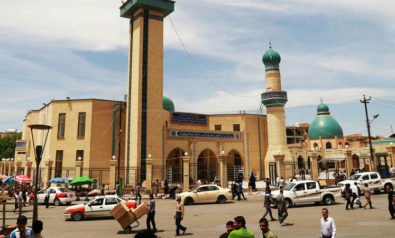

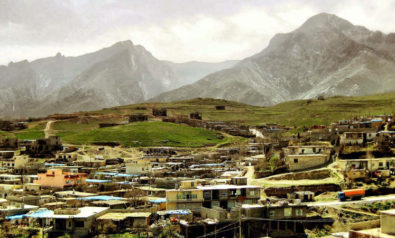

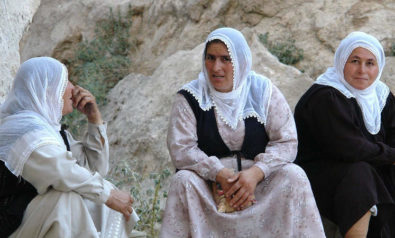
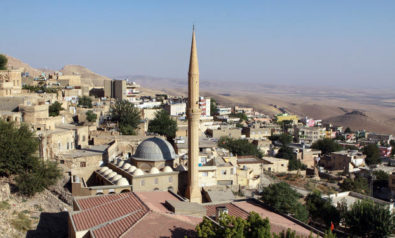
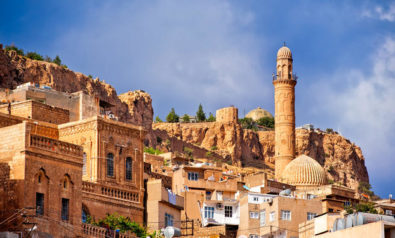
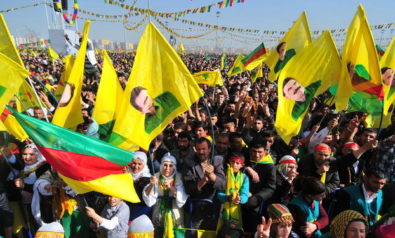
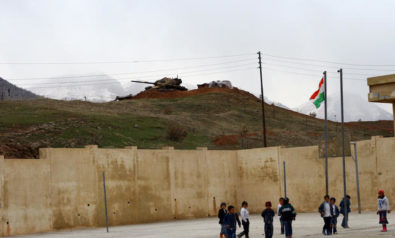

Comment